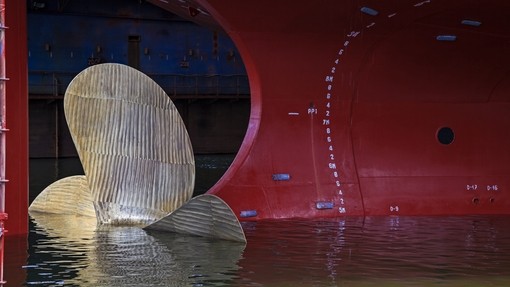Which law prevails - the law of the seat or the law of the main contract?

Details
Introduction
In previous editions of Trade Advantage we have reported on the decisions of the High Court (Trade Advantage March 2020, page 12) and the Court of Appeal (Trade Advantage August 2020, page 14) in Enka Insaat ve Sanayi -v- OOO Insurance Co Chubb.
The question of which law prevails in the absence of an express choice, where there is an arbitration agreement but that agreement is silent as to the law applicable, has long been a question of legal and academic debate: the law of the seat of an arbitration or the law governing disputes in the main contract?
Such question arises because an arbitration agreement is treated as an independent agreement, severable from the contract which contains it.
We cannot be guided by the Rome I Regulation on applicable law for contractual obligations to answer this question because the Regulation excludes from its scope at article 1(2)(e) ‘arbitration agreements and choice of court agreements’.
The Court of Appeal had wanted to ‘impose some order and clarity’ to the common law position and yet, the Supreme Court gave permission to appeal.
While agreeing that an anti-suit injunction (ASI) against proceedings in Russia should be upheld because there was an enforceable English arbitration agreement, the Supreme Court reached that conclusion on a very different legal basis from the Court of Appeal.
Reminder of the factual background
To recap, the parties’ dispute had arisen under a construction contract (the Contract) that contained an ICC arbitration clause where London was to be the seat for any arbitration.
Chubb had subrogated claims against a sub-contractor, Enka, following a fire on a construction site in Russia. In breach of the arbitration clause, Chubb brought proceedings in a Russian court against Enka. Enka then sought an ASI from the English High Court to restrain the Russian proceedings in favour of ICC arbitration. Importantly, neither the Contract nor the arbitration agreement within it contained an express choice of law clause. The judges in all three instances therefore had to grapple with the default position in the absence of the parties’ express choice of law.
It is also of note that while the Rome I Regulation could not aid interpretation of the arbitration agreement, it did assist in identifying the law governing the main contract, which was found to be Russian law, although there was no applicable law clause per se.
The Court of Appeal’s findings
The Court of Appeal sought to lay down the principle that, in the absence of an express choice of law in the arbitration agreement, there was a strong presumption that the law of the chosen arbitral seat would govern the arbitration agreement. With the seat in London, hence English law applied.
The Supreme Court’s findings
On appeal, the Supreme Court disagreed that the choice of arbitral seat determined the applicable law.
Instead, all five judges of the Supreme Court found that, if there is to be a general rule, it is that the governing law clause of the main contract, if present, would also apply to the arbitration agreement within it (where the arbitration agreement itself does not contain a governing law clause). They considered it was reasonable and natural to assume that the same system of law governs all elements of a contract.
And where there is no choice of law in either the contract or the arbitration clause, the relevant English common law test is to determine the law with which the arbitration agreement was most closely connected.
It was at this point that the law lords diverged.
The majority found that the law with which the arbitration agreement was the most closely connected was usually the law of the seat.
The minority (Lords Burrows and Sales) dissented, stating that the law most closely connected to the arbitration agreement was the law most closely connected to the main contract. Consequently, in the view of the minority, Russian law should have applied to the arbitration agreement.
What if Russian law applied with an English arbitral seat?
In a further significant determination, all five judges affirmed the Court of Appeal’s finding that the grant of an ASI where there is an English arbitral seat is subject to the same principles whether or not English law applies to the main contract.
Had Russian law applied to the arbitration agreement, the English court would have had to apply Russian law to determine whether the arbitration agreement was valid so as to justify an ASI being granted.
Conclusion
Based on the Supreme Court’s views in this case, we would extract the following principles when interpreting the proper law to apply to an arbitration agreement.
a) Does the arbitration clause contain a choice of law? If yes, that law will govern the arbitration.
b) If the answer to a) is no, does the contract contain a separate applicable law clause? If yes, this law will generally govern the arbitration.
c) If the answer to b) is no, then the law applicable to the arbitration agreement will be the law that is most closely connected to it. If there is a chosen arbitral seat, the law of that seat will be the law most closely connected to the arbitration agreement.
d) What if the contract contains one applicable law clause and the arbitration agreement contains a different applicable law clause?
The main contract applicable law clause will prevail, as decided by the Court of Appeal in another recent case.4 These are thorny issues and ‘clarity’ is not the first word that springs to mind. Our advice therefore is to ensure you stipulate the applicable law as clearly as possible when drafting contracts and any arbitration clauses.






